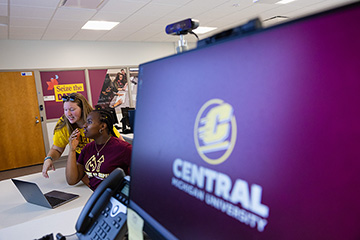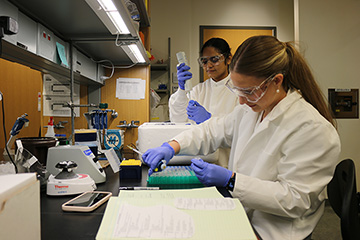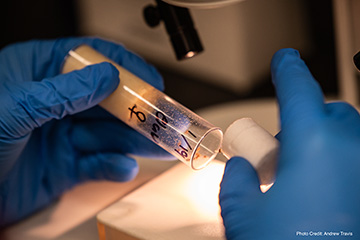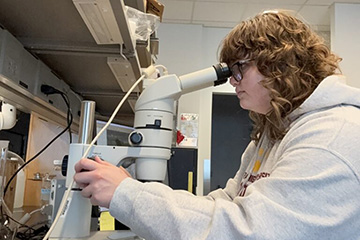CMU engineers dive into the impact of anaerobic digestion on health and environment
Researchers in the School of Engineering and Technology at CMU are embarking on an important mission to understand how certain methods used to treat sewage affect our environment and health. Environmental Engineering faculty member Maggie Williams, School of Engineering and Technology Director Goksel Demirer, and graduate student Yasna Mortezaei are studying a process called anaerobic digestion, which is like a big composting system for waste. They want to see how things like temperature and time impact two key things: antibiotic resistance (which makes infections harder to treat) and the production of biogas, a type of renewable energy.
To do this, they're collecting samples of sludge from different places where sewage is treated. Then, in their lab, they're running experiments to see how changing conditions affect the way bacteria, antibiotic resistance, and biogas behave during anaerobic digestion.
Using advanced tools like DNA testing and gas analysis, they're keeping a close eye on how these tiny organisms and gases change under different conditions. This is crucial because antibiotics used in industries like farming and medicine end up in our sewage, where they can cause problems like antibiotic resistance.
This research matters a lot because antibiotic resistance is becoming a big problem worldwide. If we don't do something about it, it could lead to millions of deaths each year by 2050. Wastewater treatment plants, where sewage gets cleaned, are key spots where these resistant genes can hang around.
Anaerobic digestion, which is part of sewage treatment, can be a good thing because it helps manage waste and produces renewable energy. But if we don't manage it well, these antibiotic-resistant genes could end up back in our food, making things worse.
The CMU team hopes their work will not only help us understand how anaerobic digestion affects antibiotic resistance and biogas, but also give us practical tips on how to do it better. By finding ways to tackle antibiotic resistance while improving biogas production, they're aiming to make our waste treatment more sustainable and keep us healthier in the long run.




